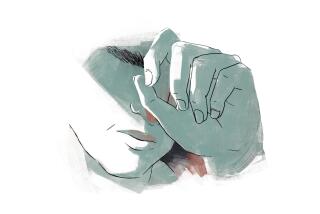Heroin use and addiction are surging in the U.S., CDC report says
- Share via
Heroin use surged over the past decade, and the wave of addiction and overdose is closely related to the nation’s ongoing prescription drug epidemic, federal health officials said Tuesday.
A new report says that 2.6 out of every 1,000 U.S. residents 12 and older used heroin in the years 2011 to 2013. That’s a 63% increase in the rate of heroin use since the years 2002 to 2004.
The rate of heroin abuse or dependence climbed 90% over the same period, according to the study by researchers from the U.S. Food and Drug Administration and the Centers for Disease Control and Prevention.
Deaths caused by heroin overdoses nearly quadrupled between 2002 and 2013, claiming 8,257 lives in 2013.
In all, more than half a million people used heroin in 2013, up nearly 150% since 2007, the report said.
Heroin use remained highest for the historically hardest-hit group: poor young men living in cities. But increases were spread across all demographic groups, including women and people with private insurance and high incomes — groups associated with the parallel rise in prescription drug use over the past decade.
The findings appear in a Vital Signs report published in the CDC’s Morbidity and Mortality Weekly Report.
“As a doctor who started my career taking care of patients with HIV and other complications from injection drugs, it’s heartbreaking to see injection drug use making a comeback in the U.S.,” said Dr. Tom Frieden, director of the CDC.
All but 4% of the people who used heroin in the past year also used another drug, such as cocaine, marijuana or alcohol, according to the report. Indeed, 61% of heroin users used at least three different drugs.
The authors of the new study highlighted a “particularly strong” relationship between the use of prescription painkillers and heroin. People who are addicted to narcotic painkillers are 40 times more likely to misuse heroin, according to the study.
Once reserved for cancer and end-of-life pain, these narcotics now are widely prescribed for conditions ranging from dental work to chronic back pain.
“We are priming people to addiction to heroin with overuse of prescription opiates,” Frieden said at a news conference Tuesday. “More people are primed for heroin addiction because they are addicted to prescription opiates, which are, after all, essentially the same chemical with the same impact on the brain.”
Frieden said the increase in heroin use was contributing to other health problems, including rising rates of new HIV infections, cases of newborns addicted to opiates and car accidents. He called for reforms in the way opioid painkillers are prescribed, a crackdown on the flow of cheap heroin and more treatment for those who are addicted.
Follow me on Twitter @lisagirion and “like” Los Angeles Times Science & Health on Facebook.
ALSO:
‘Female Viagra’ a political tightrope for FDA, advisors warn
Screening mammograms don’t prevent breast cancer deaths, study finds
Why do doctors, of all people, show up for work sick?







